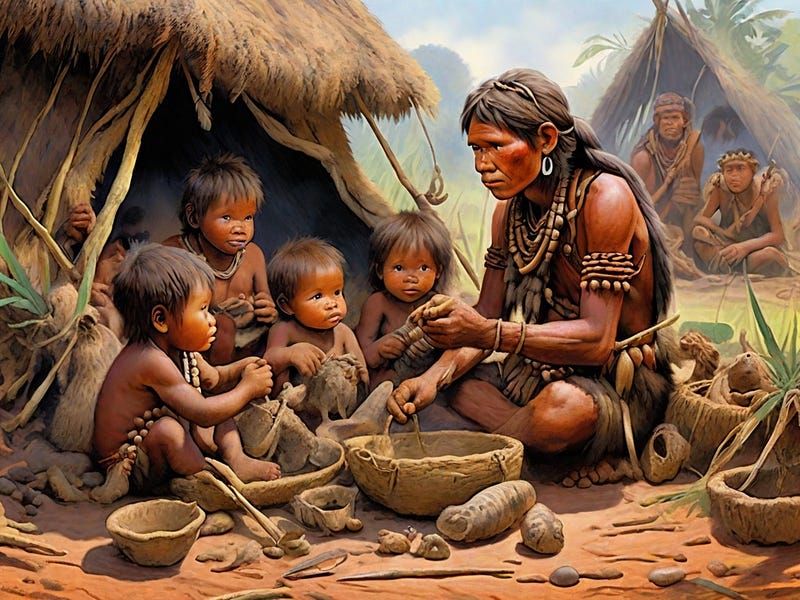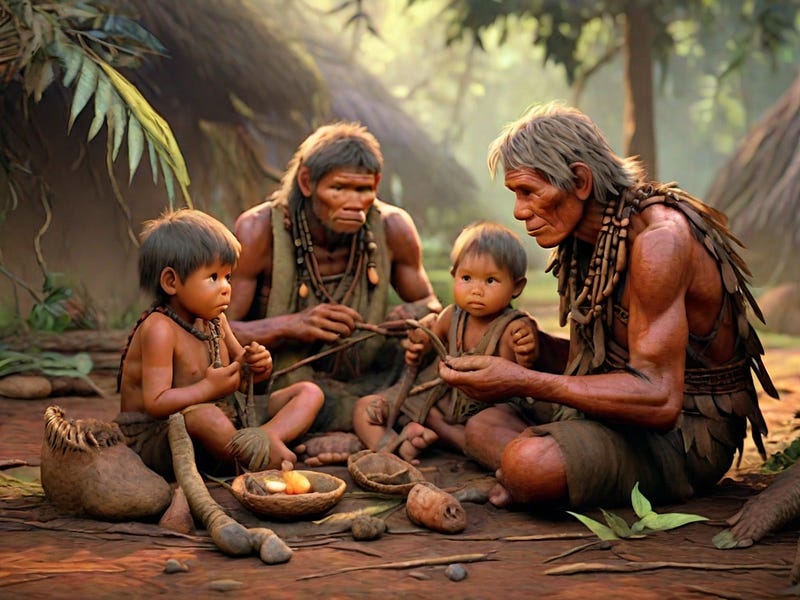# Unraveling Childrearing Practices in Hunter-Gatherer Societies
Written on
Chapter 1: The Role of Caregivers in Hunter-Gatherer Cultures
Recent studies highlight the significance of childrearing, particularly in hunter-gatherer communities. In such societies, infants may be attended to by as many as 15 different caregivers throughout a day. This diverse involvement plays an essential role in the development and well-being of children.

Historically, hunter-gatherer societies represent the earliest forms of human economy, relying on foraging and hunting for sustenance. These groups typically led nomadic lifestyles and did not begin domesticating animals until the Neolithic period, marking a significant shift in human behavior.
Section 1.1: Cooperative Childrearing
Recent research from the University of Cambridge suggests that, despite their limited technological advancements, hunter-gatherer societies exhibit a robust sense of cooperation. An article published in “Developmental Psychology” details intriguing child-rearing practices within modern hunter-gatherer communities.
The authors argue that mothers in these societies benefit from strong communal support. Evolutionary anthropologist Dr. Nikhil Chaudhary found that infants can receive care from 15 to 20 different individuals throughout the day.
Dr. Chaudhary states, “For the majority of our species' history, mothers likely had far more social support than they do today in Western nations.”
Subsection 1.1.1: Insights from Modern Hunter-Gatherers
The study of modern hunter-gatherers can reveal parenting practices that align with the psychological needs of infants and their mothers. In the article, the authors note, “Most attachment research has focused on Western populations, making our analysis of the Mbendjele hunter-gatherers in the Republic of Congo particularly relevant.”
Dr. Chaudhary and a colleague spent months with the Mbendjele Bayaka, observing their caregiving methods. Their findings were further examined with child psychiatrist Dr. Annie Swanepoel.
“By observing 18 children under four years old for 12 hours, we identified a communal caregiving pattern. When a child cried, anyone nearby would respond promptly, primarily through physical contact to offer comfort. Crying was consistently met with quick reassurance, rather than punishment,” the researchers explained.

Section 1.2: The Impact of Responsive Care
According to the researchers, children in these societies experience extensive physical affection and care throughout the day. Notably, several caregivers, often not related by blood, may attend to a single child, with some infants receiving care from numerous individuals within a single day.
Dr. Chaudhary notes, “These insights enhance our understanding of the responsive care children can expect, which is crucial for their development.”
He emphasizes that such intensive caregiving not only benefits the child but also enhances parental well-being. “This aligns with previous studies that indicate a connection between caregiver instability and developmental challenges in children, affecting both emotional and cognitive growth,” he adds. Dr. Chaudhary advocates for improved child care and protection measures in Western societies, pointing out, “The nuclear family model in the West stands in stark contrast to the communal living typical of hunter-gatherer groups like the Mbendjele.”
Chapter 2: Reflections on Modern Parenting Practices
Dear readers,
I wish to draw attention to an important issue affecting content creators on platforms like Medium.com. Despite our commitment to crafting valuable content, the compensation we receive is often minimal. If you appreciate my work, please consider supporting me on my “Buy Me a Coffee” page. Your contributions, however small, can inspire me to continue creating engaging and insightful articles. Thank you for being part of this journey!

